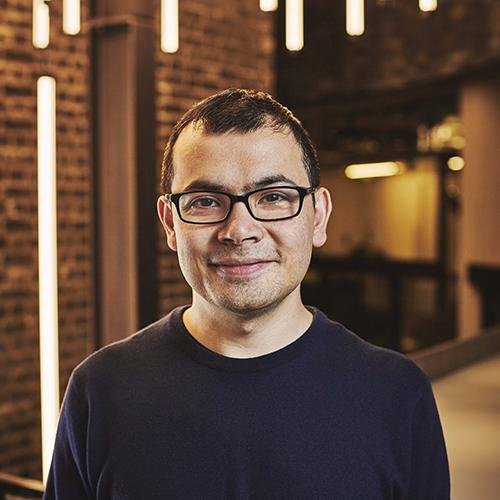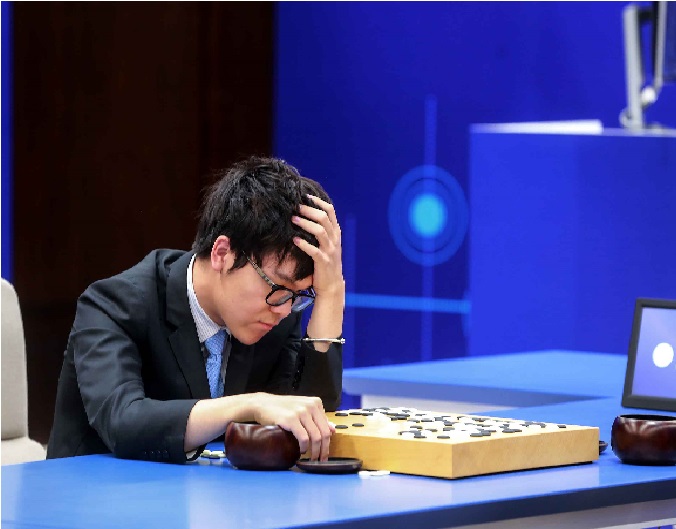Author
Kashish ChauhanLast Updated: 28/01/2018
A
lphaGo is the first computer program to defeat a professional human Go player, the first program to defeat a Go world champion, and arguably the strongest Go player in history. The game originated in China 3,000 years ago.The rules of the game are simple: players take turns to place black or white stones on a board, trying to capture the opponent's stones or surround empty space to make points of territory. As simple as the rules are, Go is a game of profound complexity.AlpaGo From Scratch
The neural system was an early version of AlphaGo. Throughout the following two years, it developed into a much more intricate AI fit for beating the world's best players—nine dan proficient grandmasters like Ke Jie and Lee Sedol. Given that the best Go players depend so much on instinct when playing this immensely complex game—an exceptionally human ability—AlphaGo marks a defining moment in the advancement of artificial intelligence. That leaves Graepel—not to mention the rest of humanity—a long way behind this new kind of machine. But not as far as you might think.

History
On the first day of joining Thore Graepel, now one of the leading researchers of DeepMind, was sat down for a game of Go by his new colleagues. Over the previous year, they’d trained a neural network to play the ancient game, and Graepel was a keen player himself, holding a one dan rank at the time, the Go equivalent of a black belt. He took upon the challenge sportingly and as the game began the DeepMind researchers started observing him. Graepel was confident he would win. After all, he had played with a number of other Go programs without any difficulty. But the game didn’t progress as he expected. “Everyone knew me as the guy who lost against the neural network,”
he says.
- AlphaGo’s first formal match was against the reigning 3-times European Champion, Mr Fan Hui, in October 2015. Its 5-0 win was the first ever against a Go professional, and the results were published in full technical detail in the international journal, Nature. AlphaGo then went on to compete against legendary player Mr Lee Sedol, the Korean Grandmaster, winner of 18 world titles and widely considered to be the greatest player of the past decade.
- AlphaGo's 4-1 victory in Seoul, South Korea, in March 2016 against Lee Sedol - a feat most researchers didn’t consider possible a few years ago - was watched by over 200 million people worldwide. It was a landmark achievement that experts agreed was a decade ahead of its time, and earned AlphaGo a 9 dan professional ranking (the highest certification) - the first time a computer Go player had ever received the accolade.

Argumented Intelligence
- Graepel once played in “pair Go” match where grandmasters played alongside the machine as a kind of dress rehearsal. He and AlphaGo played as a team, alternating moves as the game progressed.
- The partnership may seem like a mismatch, given the enormous gap in abilities. And in a way, it was. But Graepel also says that playing alongside AlphaGo provides an immediate education.
“By observing AlphaGo’s moves, it somehow raises your own game,”
he says, estimating that his play climbed to three or four dan levels over the course of the match.“I was able to contribute.”
- Lian Xiao, one of the Chinese grandmasters who played alongside AlphaGo, described a similar phenomenon.
“AlphaGo acts like a human being,”
he said through an interpreter during the post-game press conference.“AlphaGo is very confident, and he gives me confidence. He helps me believe I should take the help.”
- For Graepel and others on the DeepMind team, this is a perfect analogy for the way AI will change the bigger world in the years to come. In spite of the fact that AI will eclipse such a large number of human abilities.
- It will assume control of such a large number of human employment and it will likewise expand and even enhance what people can achieve.
- Like DeepMind founder Demis Hassabis, he believes AI will help scientists expand their research and help doctors better treat their patients.
“I would hope that when humans work together with AI, they get better at whatever they want to do,”
he says.
Future Prospects
- Much of that future has yet to play out. And there is no guarantee that AI improves humanity. “In some cases,” grandmaster Gu Li said after a pair game alongside AlphaGo,
“I could not follow in his footsteps.”
- DeepMind has effected real change in the world of Go, a game that’s enormously popular across China, Korea, and other parts of Asia, and that is a comforting thing.
- After losing matches to AlphaGo, European champion Fan Hui and Korean grandmaster Lee Sedol said the machine opened their eyes to new possibilities. And some observers continued to lament that machines were eclipsing humans. But that’s not the story of AlphaGo.
- The most striking fact about it is how closely the players have studied the games fplayed by AlphaGo—and how hungry they are for more. Many have repeatedly called on DeepMind to release the many games that AlphaGo has played in private. They know they can’t beat the machine. But like Thore Graepel, they believe it can make them better.
- Many have more than once approached DeepMind to disclose the many games that AlphaGo has played in private. They know they can't beat the machine. Be that as it may, as Thore Graepel, they trust it can improve them.
